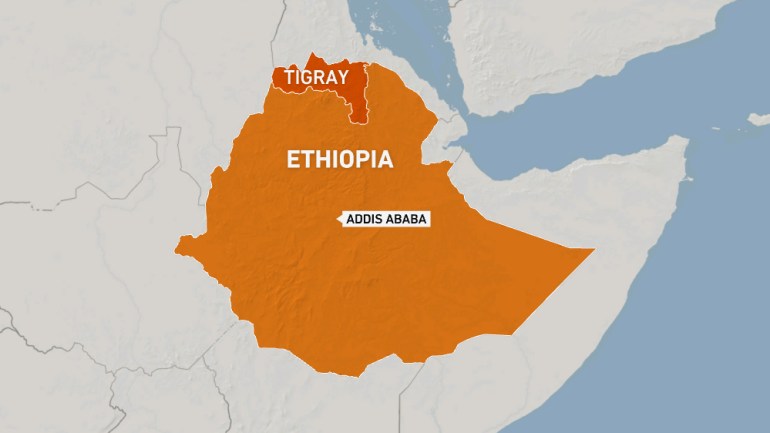More than 300,000 cases in the last 24 hours while COVID-19-related deaths also jump by a record 2,104 fatalities.

India has reported more than 300,000 coronavirus cases over the last 24 hours, the highest daily global total, while COVID-19-related deaths also jumped by a record, as a brutal second wave raises fears about the ability of the country's health services to cope.
India’s daily jump of 314,835 cases on Thursday surpasses the previous highest one-day rise in the world of 297,430 cases posted by the United States in January.
India’s total cases are now at 15.93 million, the world’s second highest, while deaths rose by 2,104 to reach a total of 184,657, according to health ministry data.
The second wave of coronavirus infections, blamed on a “double mutant” variant and “super-spreader” mass gatherings, in the world’s second-most populous nation has stretched its long-underfunded healthcare system to a breaking point.

Health workers attend to a suspected COVID-19 patient in Mumbai [Divyakant Solanki / EPA]
Hospitals across northern and western India including the capital, New Delhi, have issued notices to say they have only a few hours of medical oxygen required to keep COVID-19 patients alive.
More than two-thirds of hospitals had no vacant beds, according to the Delhi government’s online data base and doctors advised patients to stay at home.
At least 24 COVID-19 patients died in western India’s Maharashtra state on Wednesday when the oxygen supply to their ventilators ran out, amid a nationwide shortage of medical oxygen, hospital beds and medicines such as the anti-viral drug, remdesivir.
Health experts say India let its guard down when the virus seemed to be under control during the winter, allowing big gatherings such as weddings and festivals.
Prime Minister Narendra Modi is himself facing criticism for addressing packed political rallies for local elections and allowing a Hindu festival to go ahead where millions gathered.
On Thursday, despite the biggest public health emergency the country has faced in a generation, people were voting in the eastern state of West Bengal for a new state assembly in an election that Modi has been campaigning in.
“It’s a festival of democracy and everyone is participating. You can see the queues, ”said Krishna Kalyan, a candidate from Modi’s ruling Bharatiya Janata Party (BJP).
‘Beg, borrow or steal’
Meanwhile, India’s television channels showed images of people with empty oxygen cylinders crowding refilling facilities in the most populous state of Uttar Pradesh as they scrambled to save relatives in hospital.
“The situation is very critical,” Dr Kirit Gadhvi, president of the Medical Association in the western city of Ahmedabad, told Reuters news agency.
“Patients are struggling to get beds in COVID-19 hospitals. There is especially acute shortage of oxygen. ”

A patient with breathing problems is seen inside a car while waiting to enter a COVID-19 hospital in Ahmedabad [Amit Dave / Reuters]
Modi said in an address to the nation on Tuesday night that “all efforts are being made” to boost the supplies of medical oxygen.The Delhi High Court on Wednesday ordered the government to divert oxygen from industrial use to hospitals to save people’s lives.
“We cannot let people die due to lack of oxygen… you beg, borrow and steal but have to provide,” the judges said in response to a petition by a New Delhi hospital seeking its intervention.
The judges asked why the government is “not waking up to the gravity of the situation”, calling it “a national emergency”.
The health ministry said of the country’s total production of 7,500 metric tonnes of oxygen per day, 6,600 metric tonnes were being allocated for medical use.
It also said 75 railway coaches in the Indian capital have been turned into hospitals providing an additional 1,200 beds for COVID-19 patients.
Meanwhile, major private and government-run hospitals in New Delhi have sent out urgent appeals to the central government, calling for immediate supplies of oxygen for hundreds of patients on ventilator support.
On Wednesday, nearly 500 tonnes of oxygen was supplied to the capital but this fell short of the required 700 tonnes per day.
The city’s government has also accused neighboring states governed by Modi’s BJP of holding up supplies.
States across India have imposed restrictions, with Delhi in a six-day lockdown, all non-essential shops shut in Maharashtra state, and Uttar Pradesh set for a weekend shutdown.
India has launched a vaccination drive but only a tiny fraction of the population has had the shots.
Authorities have announced that vaccines will be available to anyone over the age of 18 from May 1 but India won’t have enough shots for the 600 million people who will become eligible, experts say.
SOURCE: AL JAZEERA AND NEWS AGENCIES
………………………………………………………………









